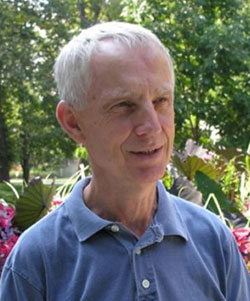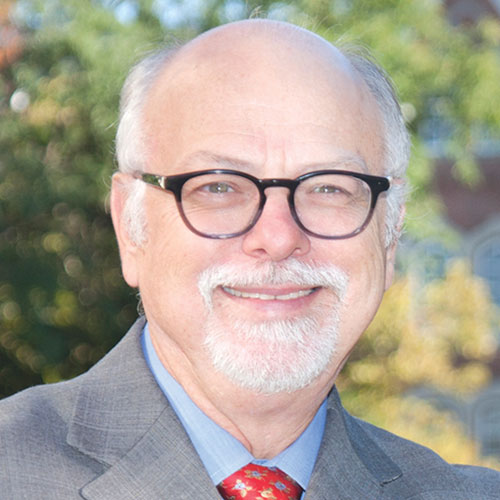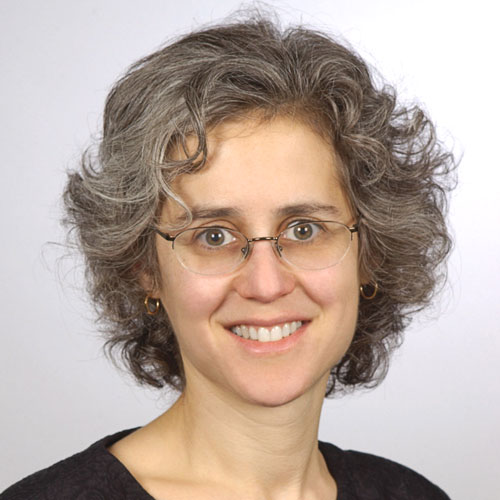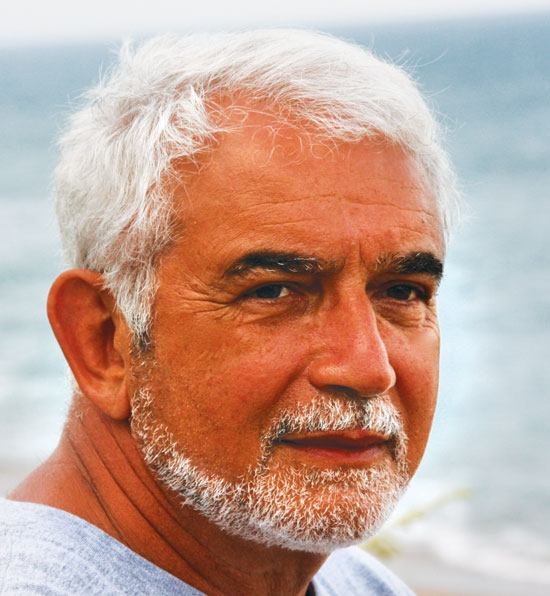New APS Officers
APS welcomes our new officers for 2011–2012. Douglas L. Medin, Northwestern University, takes the helm as APS President, while Mahzarin Banaji, Harvard University, becomes Immediate Past President and Joseph Steinmetz, The Ohio State University, joins the Board as President-Elect. Gün Semin, Utrecht University, has been appointed APS Secretary, succeeding Anne Treisman, Princeton University, in that post. Lisa Feldman Barrett, Northeastern University, and Susan Gelman, University of Michigan, begin their three-year terms as APS Board Members. APS offers a warm thanks to outgoing Immediate Past President Linda Bartoshuk, Board Members Elke Weber and Susan Goldin-Meadow, and Secretary Anne Treisman for their outstanding work and dedicated service to the Board and APS.

Doug Medin
Q&A with APS 2011–2012 President Douglas L. Medin
What is your vision for APS?
I think that the APS staff, the Board, and our thousands of members share a common vision for APS. This includes fostering psychological science in its diverse forms, sharing our perspectives and findings with the public and with policy makers, and bringing out the relevance of our science to human needs. My goal is to be part of that vision.
Why did you initially want to be involved in leading APS?
The short answer is that APS is centrally important to psychological science. Under the guidance of Alan Kraut, his staff, and previous APS boards, the Association for Psychological Science has become large enough and powerful enough to address issues of accessibility, relevance, and policy, but not so large that its mission has become unfocused. Although our APS history includes a “splitting away” from the American Psychological Association, I see our missions as complementary and as providing opportunities for synergy.
In addition, APS has a firm commitment to supporting a psychology that has its identity as an international discipline. I’m a firm believer in the idea that “everything is cultural.” This idea carries the corollary that if psychological science is primarily practiced by one cultural group, the science that gets done will reflect that same culture and its values. Recognizing our field as an international discipline opens the opportunity for our science to benefit from many cultural perspectives.
Why do you feel APS is important to psychological science?
In my opinion, the two biggest issues facing humankind are: Can we get along without killing each other, and can we be part of the earth without destroying it?
Both issues are fundamentally about human values, beliefs, and behaviors, and to address them we need the very best research and theoretical perspectives that our discipline has to offer. These sorts of issues involve both individuals and institutions, and they must be addressed by both individuals and institutions. Surprisingly, many people, including people in positions of power, do not see psychological science as relevant to these problems. APS plays a critical role in supporting and showing what our discipline has to offer.
 Joseph E. Steinmetz
Joseph E. Steinmetz
The Ohio State University
President-Elect, 2011–2012
Past Board Member (1997–2000) Joseph Steinmetz returns to the APS Board as President-Elect. He is the Executive Dean and Vice Provost of Arts and Sciences and a Professor of Psychology and Neuroscience at The Ohio State University. Previously, he was Chair of the Department of Psychology and Executive Dean of Arts and Sciences at Indiana University. He also served as Dean of Liberal Arts and Sciences at the University of Kansas.
Steinmetz’s research focuses on the neurobiology of learning and memory using various neuroscience techniques, such as electrophysiology and brain imaging, to study how the brain encodes, stores, and retrieves memories. Specifically, Steinmetz studies classical eyeblink conditioning and the role of the cerebellum — the part of the brain that deals with motor control, balance, and equilibrium — in its acquisition and expression. He also conducts parallel experiments involving human and animal models. The findings have important implications for a variety of clinical disorders, such as autism, schizophrenia, fetal alcohol syndrome, and anxiety disorders.
Steinmetz is “very interested in promoting the many important roles that psychological science plays as a foundational science involved in solving some of the world’s most complex problems, as well as the role the discipline plays as a member of the larger academic community.” Steinmetz believes that the future of psychological science, in part, depends on “connections we build with other scientific disciplines — enhancing these ties is also a goal for my time on the APS Board.”
Among his many awards and honors, Steinmetz received the Indiana University College of Arts and Sciences Distinguished Faculty Award in 2000 and was a Distinguished Professor at both Indiana University and the University of Kansas. He is a Fellow of the Society of Experimental Psychologists, an APS and APA Fellow, and his work has been widely published in prestigious journals. He has served as the editor-in-chief of Integrative Physiological and Behavioral Science and Behavioral Science and Behavioral and Cognitive Neuroscience Reviews. In 1996, Steinmetz won the Troland Research Award for his pioneering research, and in 2008 he received the Gantt Medal from the Pavlovian Society for career research contributions.
To Steinmetz, APS is the premier voice for psychological scientists and critical to the future success of the field. “APS has had a significant impact on many areas of interest to psychological scientists, including the worlds of research, teaching, and public policy.”
 Lisa Feldman Barrett
Lisa Feldman Barrett
Northeastern University
APS Board Member 2011–2014
A Distinguished Professor of Psychology at Northeastern University, Lisa Feldman Barrett is the Director of the Interdisciplinary Affective Science Laboratory and the co-director of the Laboratory of Aging and Emotion at Massachusetts General Hospital. Barrett studies emotion from a psychological and neuroscience perspective while also incorporating other disciplines. She developed a new model of emotion based on affect, which is called the conceptual-act model of emotion. This model suggests that basic emotions are not preformed biological entities but emerge in consciousness in the moment from basic psychological primitives (core affect, categorization, and attention.) Some of her current projects focus on understanding the psychological construction of emotion (i.e., how basic affective and conceptual ingredients provide the recipes for emotional experiences), age- and disease-related changes in affective circuitry within the human brain, language and context shape emotion perception and experience, affect’s influences on attention in vision, and sex differences in emotion.
Barrett’s contributions to psychological science have been widely recognized with numerous leadership positions, awards, and invited addresses. She received the 2007–2008 James McKeen Cattell Fund Fellowship for her outstanding research on a new affect-based model of emotion which she further explored during her sabbatical. She was invited to present APS’s William James Distinguished Lecture at the 2006 annual meeting of the New England Psychological Association. Barrett also received the NIH Director’s Pioneer Award in 2007. Barrett’s main goal is to serve APS to the best of her ability “focusing on the most pressing issues for psychological science both nationally and internationally.” Barrett also aims to further “enhance the public understanding of the value in basic psychological research and explore the ways in which psychological science can be used as a platform for both formal and informal science education — using STEM programming, science fairs, science museums, and Wikipedia to enhance communication of basic knowledge about the mind and behavior.”
Barrett currently serves on the U.S. National Academy of Sciences Board on Behavioral, Cognitive, and Sensory Sciences. She is an elected Fellow of many academic societies, including APS and the American Association for the Advancement of Science. She is one of the founding editors-in-chief of the journal Emotion Review and has also served on the editorial boards of numerous journals, including Psychological Science, Psychological Review, Journal of Personality and Social Psychology, and Emotion.
 Susan A. Gelman
Susan A. Gelman
University of Michigan
APS Board Member 2011–2014
APS Fellow Susan Gelman is the Frederick G.L. Huetwell Professor of Psychology at the University of Michigan, where she teaches and studies cognitive development, language acquisition, categorization, inductive reasoning, causal reasoning, and relationships between language and thought. She is also the director of the Conceptual Development Lab, which focuses on children’s language and thought.
Gelman’s research has been influential in several areas of developmental, cognitive, and linguistic psychological science. In 2005, she won the Inaugural Cognitive Development Society Book Award for best authored or co-authored volume for one of her many books, The Essential Child. In 2007–2008, as a James McKeen Cattell Fund Fellow, she spent a year on sabbatical to further research and write articles on psychological essentialism in children. She is a Fellow of the American Academy of Arts & Sciences. Her dedication to the science of psychology is evident by her many leadership and editorial services for numerous psychological organizations. She is currently an associate editor of Cognitive Science and Quarterly Journal of Experimental Psychology and on the editorial boards of several other journals. In 2005–2007, she served as President of the Cognitive Development Society.
According to Gelman, APS effectively accomplishes its core mission of representing and promoting psychological science most obviously in its journals and annual convention. She is excited to be part of this “vibrant, vital, and growing organization.”
“My goals are in some sense very modest: to do my best to support the continued good work of this important organization,” said Gelman “At the same time, I think that cross-fertilization of ideas is important to avoid stagnation or complacency, and I hope to encourage diversity of perspectives, both in international membership and in involvement from those in allied disciplines with interests in psychological science.”
 Gün R. Semin
Gün R. Semin
Utrecht University
Secretary (Appointed)
APS Fellow Gün Semin is a professor at Utrecht University in Utrecht, Netherlands. He is interested in communication, social cognition, and language. Specifically, he studies the embodied grounding of meaning and communication and the diverse uses of language in social interactions. Through his work, he has come to understand social behavior as dynamic and highly influenced by context and situation. In other words, Semin explains, he views human behavior as a movie rather than stills. As a Board Member, he hopes to strengthen international links within psychological science by consolidating bridges between fields that are already in the making and by building new ones. “This means going beyond specific boundaries defined in any geographical or national sense, because science does not recognize geographic boundaries,” says Semin.
In addition to joining the APS Board as Secretary, Semin will continue to serve as the APS International Committee Chair. “APS has a unifying scientific aim, superseding subdisciplinary divisions — much like the theme of the 2011 APS Convention, which was Convergence. This integrative goal is critical for the advancement of psychology as a science.”
Semin is the Chair of the Psychology Panel for the Foundation for Science and Technology in Portugal and a member of the European Research Council panel on “The Human Mind and Its Complexity.” He is an APS Fellow, a Society of Personality and Social Psychology Fellow, and an Alexander von Humboldt Fellow (Germany). In 2004, he received an Academy Professorship from the Royal Netherlands Academy for Arts and Sciences program for outstanding senior researchers. One of his many articles received the Society for Personality and Social Psychology’s Theoretical Innovation Prize in 2005.





APS regularly opens certain online articles for discussion on our website. Effective February 2021, you must be a logged-in APS member to post comments. By posting a comment, you agree to our Community Guidelines and the display of your profile information, including your name and affiliation. Any opinions, findings, conclusions, or recommendations present in article comments are those of the writers and do not necessarily reflect the views of APS or the article’s author. For more information, please see our Community Guidelines.
Please login with your APS account to comment.